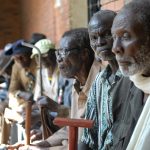We propose a randomised controlled trial to test the impact of two low-cost interventions to overcome psychological and information constraints to female labor force participation (FLFP). Our research questions are, does (i) motivating female students and (ii) providing information about the job market, promote female labor force entry, as measured by their likelihood of applying…
Overcoming Constraints to Female Labour Force Entry
Entrepreneurship Education and Teacher Training in Rwanda
Youth account for 60% of Africa’s unemployed. In Rwanda, 72% of employed youth work for family firms or are self-employed (African Economic Outlook 2016). These outcomes suggest that schools are failing to develop the skills required to enter formal sector jobs or launch and grow small firms. In response, Rwanda is one of ten African…
Urban Density and Labour Markets
Many of the world‘s poorest people live and work in dense informal settlements in Africa’s growing megacities. These communities have both positives and negatives. On one side, settlements, often located in central areas, provide workers with access to geographically proximate jobs, dense informational and social networks, and a large demand base for entrepreneurial ventures. Density…
Impacts of Microfranchising on Young Women’s Occupational Choices
Youth underemployment is a major challenge facing developing nations, particularly in Africa (Filmer and Fox 2014). Young people are more likely to be unemployed than older adults (Kluve et al. 2016). In low-income countries, unemployment figures also typically underestimate the proportion of youths who cannot find productive jobs (Fares et al. 2006). After leaving school,…
A Labour Markets Research Agenda through a Job Search Platform
Labour markets in low-income countries experience many frictions that impair efficient firm-worker matching (Behrman, 1999). Information frictions can hinder firms’ attempts to observe workers’ skills and productivity (Abel et al., 2016; Bassi & Nansamba, 2017; Carranza et al., 2017), spatial frictions can separate firms and workers (Franklin, 2017), regulatory frictions can deter firms from hiring…
Advancing Data Capacity for Policy Innovation in Sudan
The objective of the Sudan Labor Market Panel Survey (SLMPS) 2019 is to facilitate better understandings of labor market dynamics and outcomes in Sudan. Our goal with the SLMPS 2019 is to collect high-quality and reliable data sufficient for indepth, multi-dimensional analyses of economic and labor market issues in Sudan. The need for high quality…
Assisting Job Search in Low-Employment Communities
Jobs are hard to find in Africa. Searching for jobs in African labour markets is expensive and time consuming. Job seekers, the young unemployed in particular, find it hard to be selected for the available positions. As a result, new employment opportunities are often not shared equally. Many economies in sub-Saharan Africa have achieved high…
Structural Change, International Trade, and Labour Markets in a Low-Income Country
The project consists of two parts. The first part of the project seeks to understand the relationship between trade, employment, and productivity in a low-income country setting. This topic is particularly timely in the context of recent bilateral free trade agreements and international trade negotiations, which aim to improve the trading prospects of low-income countries. …
Labour Markets and Household Enterprises
It is a general tenet of economic theory that competitive markets, supported by adequate infrastructure and institutions, do a better job of determining prices and allocating resources than do large-scale government planning programmes. In the structural adjustment era of the 1980s-90s, this belief underpinned a historic shift away from central planning and toward market liberalisation…
The Formal-Informal Labour Nexus and Growth
Although employment in low-income countries (LICs) is strikingly concentrated in the informal sector, the contribution of this sub-economy to the larger economy is not well understood. The traditional view holds that labour markets are segmented; the informal sector provides subsistence income, or a pool of surplus labour for the formal sector, and will likely disappear…
Social Insurance and Labour Market Outcomes in Ethiopia
This project aimed at evaluating the labour market implications of a major social insurance reform program in Ethiopia introduced in June 2011. Employment based and mandatory pension schemes for workers in the formal private sector of Ethiopia were introduced by this reform. Given the high urban unemployment rate in Ethiopia, which at the time of…
Matched Employee-Employer Panel-Data for Labour Market Analysis in Zimbabwe
Zimbabwe is a low-income economy emerging from years of economic crisis. The crisis had a profound impact on production, employment and human development. The policy challenges to growth and recovery are severe and will require rigorous economic analysis drawing on a detailed understanding of the field and relevant data of a high quality. This project…
The Urban Geography of Entrepreneurship and Growth in India
Rapid urbanisation is a major phenomenon in many developing countries. Cities are the engines of economic development; however, little is known about what determines the success of cities in developing countries, nor about the factors that shape the characteristics of rapid urbanisation. The historical literature on urban economics is rooted in the rise of the…
Wage Compression in Low Income Labour Markets
Do relative pay comparisons matter for worker behaviour? A long tradition in economic thought – as well as in psychology, sociology, and human resource management – has advanced the notion that individuals care about not only their own pay but also their pay relative to that of their co-workers. When subjected to unequal pay, workers…
Modelling Labour Markets in LICs with Imperfect Data
Despite the centrality of the labour market to the questions of poverty and inequality, African labour markets are not well understood and significant research gaps exist. These gaps have important implications: they weaken the ability of governments to design and implement effective policies and hamper the monitoring of change and the measurement of impact. Within…
Are Labor Costs in Africa too High?
High labor costs appear to be a factor that undermines the creation of low-skill jobs in formal manufacturing firms at a large scale in several African countries. First, there exists a small number of formal manufacturing firms in Africa. These firms face higher labor costs than similar firms in numerous comparator countries, even after controlling…















